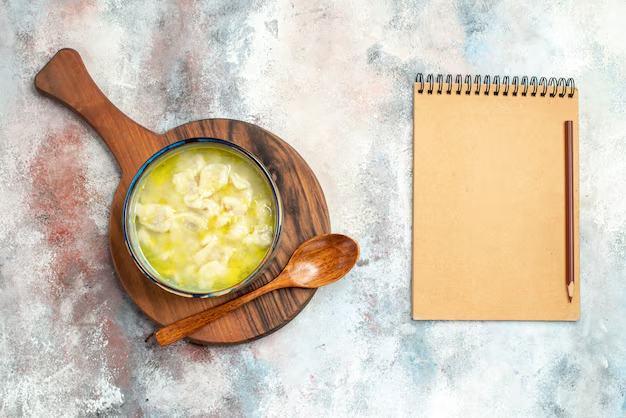How Long Do Mashed Potatoes Last in the Refrigerator? A Guide to Storage and Shelf Life
Mashed potatoes are a beloved comfort food, gracing dinner tables during holiday feasts and family meals alike. However, with great enjoyment comes great responsibility—ensuring that your delicious, fluffy potatoes remain safe to eat after cooking. If you've ever found yourself staring at a container of mashed potatoes in the fridge, wondering if they're still good, you're in the right place. This guide explores how long mashed potatoes last in the refrigerator, complementary storage tips, and related food safety advice.
Understanding the Shelf Life of Mashed Potatoes
Mashed potatoes, like many cooked foods, have a limited shelf life when stored in the refrigerator. Typically, mashed potatoes are safe to eat for three to five days when refrigerated. However, several factors can influence this timeframe.
Factors Affecting Freshness
Ingredients: The type of ingredients used in your mashed potatoes can affect their longevity. Dairy-rich potatoes (with butter, cream, or milk) may spoil quicker than those made with simple broth.
Storage Method: Proper storage is crucial for preserving the shelf life of mashed potatoes. Airtight containers help reduce exposure to bacteria and airborne contaminants.
Original Freshness: Quality matters. Using fresh potatoes and ingredients can extend the shelf life of your dish.
Refrigerator Temperature: Maintaining a consistent temperature of 40°F (4°C) or lower ensures that bacteria growth is slowed, helping your potatoes last longer.
Tips for Proper Storage
To maximize the shelf life of mashed potatoes in the refrigerator, consider these tips:
🥣 Use Airtight Containers: Store your mashed potatoes in airtight containers to keep them fresh and reduce exposure to air, which can cause them to spoil faster.
🕰️ Prompt Refrigeration: Place leftovers in the refrigerator within two hours of cooking to prevent the growth of harmful bacteria.
🧊 Let Them Cool: Allow mashed potatoes to cool to room temperature (but not for too long) before refrigerating. This prevents condensation in the container, which can lead to spoilage.
🔁 Avoid Cross-Contamination: Keep mashed potatoes separate from raw meats or other uncooked ingredients to prevent bacteria transfer.
Recognizing Signs of Spoilage
Even with proper storage, mashed potatoes can go bad. Knowing how to identify signs of spoilage is essential:
Smell: A sour or unpleasant odor is a clear indicator that mashed potatoes are no longer safe to eat.
Texture: If the texture becomes watery or excessively clumpy, or if there are obvious signs of mold, it’s time to discard them.
Taste: If none of the above signs are present but the taste is off, it’s best to err on the side of caution and not consume them.
Reheating Mashed Potatoes Safely
Reheating is a common concern when it comes to leftovers like mashed potatoes. Ensuring they are thoroughly reheated to a minimum internal temperature of 165°F (74°C) can kill any potential bacteria. Here are some methods and tips for reheating mashed potatoes:
Microwave: Place the potatoes in a microwave-safe dish, cover with a microwave-safe lid or wrap, and heat in short intervals, stirring in between to ensure even heating.
Oven: Warm in an oven-safe dish covered with foil at 350°F (175°C) until heated thoroughly. Add a splash of milk or cream to restore moisture.
Stovetop: Heat gently in a saucepan over low heat, stirring frequently. Consider adding a bit of butter or milk to improve texture and flavor.
Related Food Safety Tips
Meal Planning and Portion Control
One way to reduce waste and minimize food safety risks is by planning your meals and managing portion sizes effectively. Consider making only what you’ll need for a single meal and, if necessary, portion and freeze some for future use.
Freezing Mashed Potatoes
If you find yourself with surplus mashed potatoes, freezing is a viable option for extending their shelf life. Here’s how:
Freezing: Place cooled mashed potatoes in freezer-safe bags or containers. Remove excess air to prevent freezer burn.
Thawing: When ready to use, thaw in the refrigerator overnight before reheating. Avoid letting them thaw at room temperature.
Nutritional Considerations
While mashed potatoes are a comforting staple, consider incorporating nutrient-rich ingredients to bolster their health benefits. Adding garlic, chives, or spinach can enhance both flavor and nutritional content.
Summary: Keeping Your Mashed Potatoes Fresh and Safe 🍽️
Here's a quick recap of how to ensure your mashed potatoes stay delicious and safe:
- Refrigerate within two hours of cooking and consume within three to five days.
- Store in airtight containers at 40°F (4°C) or lower.
- Reheat thoroughly to 165°F (74°C) to minimize bacteria risk.
- Check for spoilage signs like odor, texture changes, and mold before consumption.
- Freeze if you have more than you can eat in a few days—this helps reduce waste.
By following these simple steps, you can enjoy your favorite comfort food without compromising on safety or taste.
Making the Most of Leftovers
Learning how to manage leftovers effectively not only helps in reducing food waste but also enhances your meal-planning strategy. Consider integrating leftover mashed potatoes into other recipes such as casseroles, potato pancakes, or even as a topping for shepherd’s pie.
Ultimately, understanding how long mashed potatoes last in the refrigerator and how best to store them is a valuable skill for any home cook. It allows you to confidently enjoy leftovers while minimizing food safety risks, helping you make the most of your culinary creations. Bon appétit!

